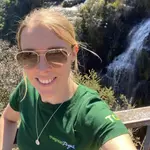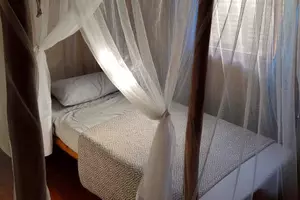

Mozambican Marine Conservation Project
Work towards integral marine conservation in one of the most marine-rich locations on earth!
Speak To A Travel Expert
Activities
The diving and snorkelling experiences offer similar activities, differentiated primarily by depth. Snorkel-based surveys will take place in whale shark and manta ray feeding zones, where they stay closer to the surface. In contrast, research dives will venture deeper, following whale sharks and manta rays moving through the depths.
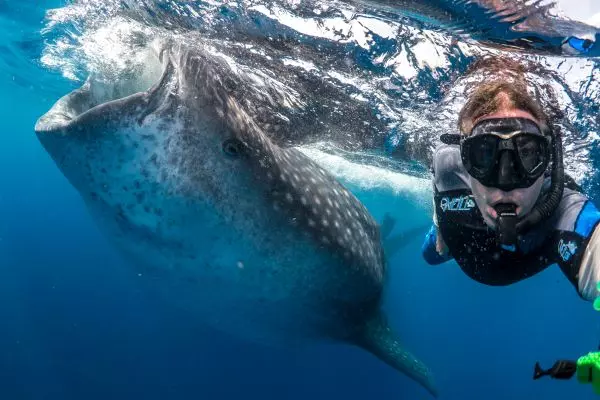
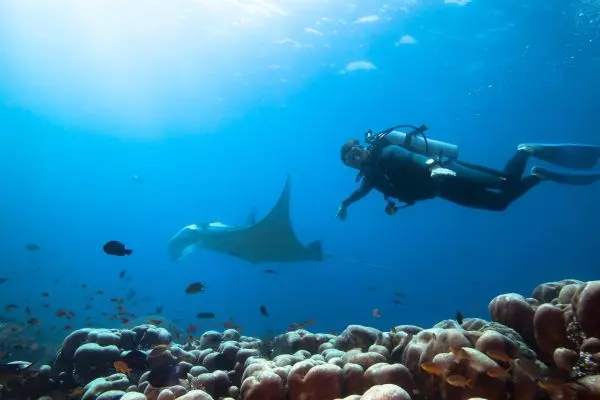
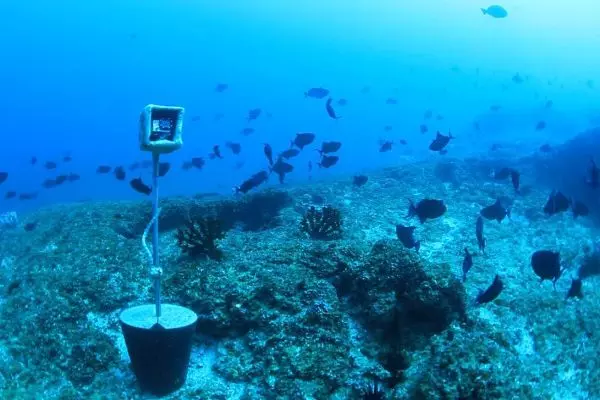
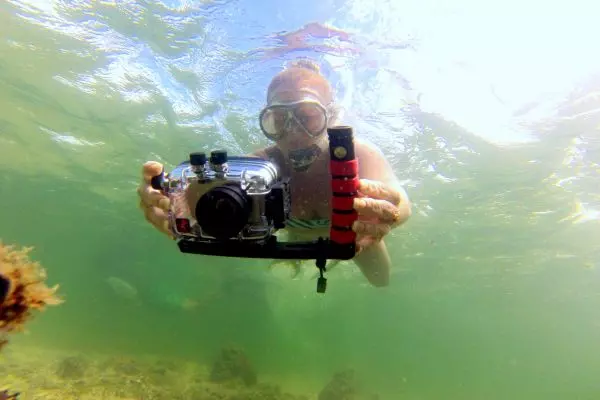
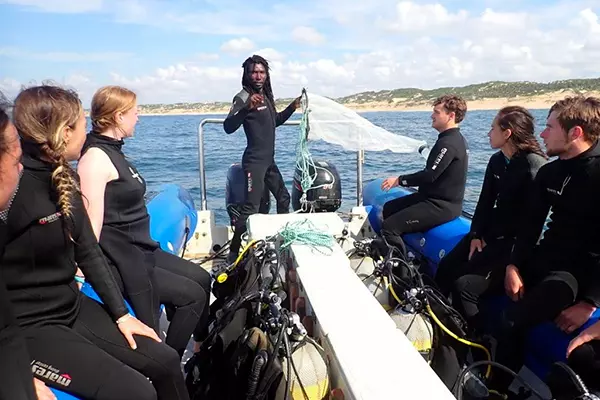
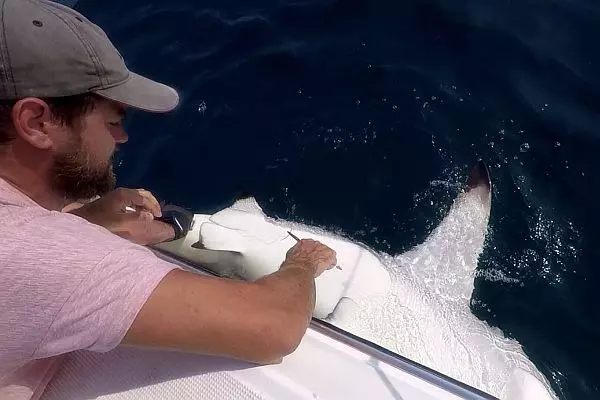
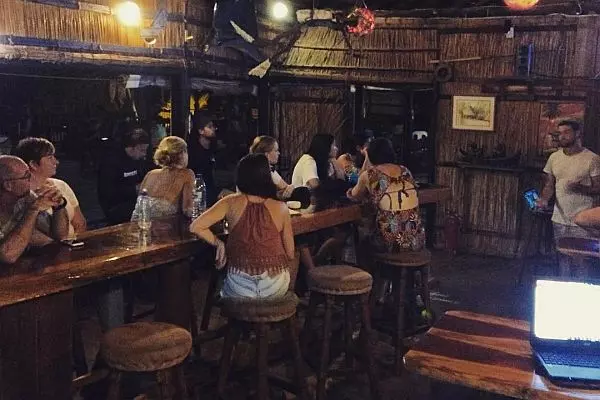
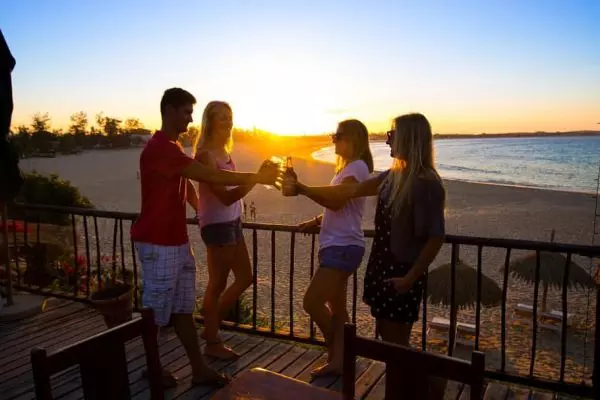
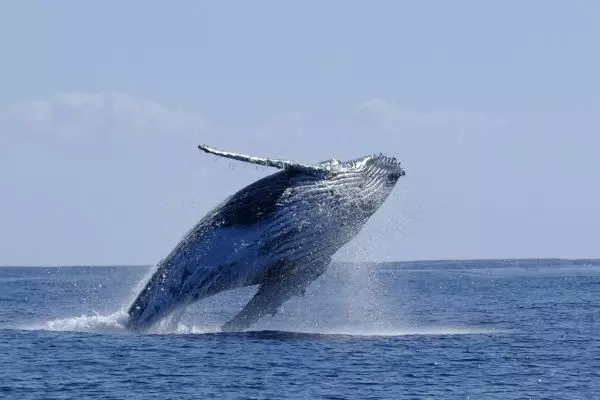
Itinerary
If you want to participate in the scuba diving option but do not have any dive qualifications, you will need to choose the Scuba Diving + A Dive Qualification option, where you'll spend your first 2-3 days gaining a RAID Open Water qualification. After this, you can take part in all the diving activities. If you are already Open Water qualified or above or participating in the snorkelling-based option, you do not need to complete any dive courses to take part, but there are opportunities to gain further qualifications if you wish.
The itinerary below is based on a 13-night stay; however, we recommend joining for a minimum of 3 weeks if you will be completing any dive courses to ensure you have plenty of opportunities to contribute to the research dives and experience all the activities on offer.
Durations & Prices
Accommodation
Accommodation
Enjoy beautiful estuary and sea views from the volunteer house, where you will be allocated a room on a twin-share, same-sex basis (unless volunteering as a couple where double rooms are available). Each room has bedding, fans and mosquito nets. Elsewhere in the volunteer house, you'll find shared bathrooms and kitchen facilities, a bar, relaxation areas - and an outside a pool located right on the beachfront!
Meals & Beverages
A private chef will prepare three meals a day for you in the volunteer house kitchen. Meals will consist of local cuisine with some Western-style dishes and dietary requirements, including vegetarian and vegan diets can also be catered for with prior notice. Tap water is available and safe to drink, and other drinks, such as soft and alcoholic beverages can be purchased for a minimal cost from the local shops and supermarkets. Additionally, there are some bars and restaurants in the local area if you are looking to treat yourself for an evening or weekend!
Project Details
When is the best time to volunteer?
Barra's 40 km coastline has over 18 reef sites, and it is renowned for its extensive marine megafauna, which is regularly spotted throughout the year. You can expect to see whale sharks, reef sharks, hammerhead sharks, manta rays, small-eyed stingrays, eagle rays, bottle-nosed dolphins, bow-mouth guitarfish, three species of turtles, and much, much more.
In winter (July – September), you can also see the incredible humpback whales making their annual migration from Antarctica to mate and give birth. If you join during this period, we offer a specialist humpback whale monitoring programme, which allows you to study these giants of the deep (please enquire for more details).
In terms of weather, Mozambique has a subtropical climate, and you can expect daytime temperatures of 30-32°C (86-90°F) throughout most of the year, and even in winter, the temperatures only fall slightly to approximately 27°C (81°F). The rainy season runs from December - March; however, the rain typically falls in short showers and you can still expect blue skies for much of the day.
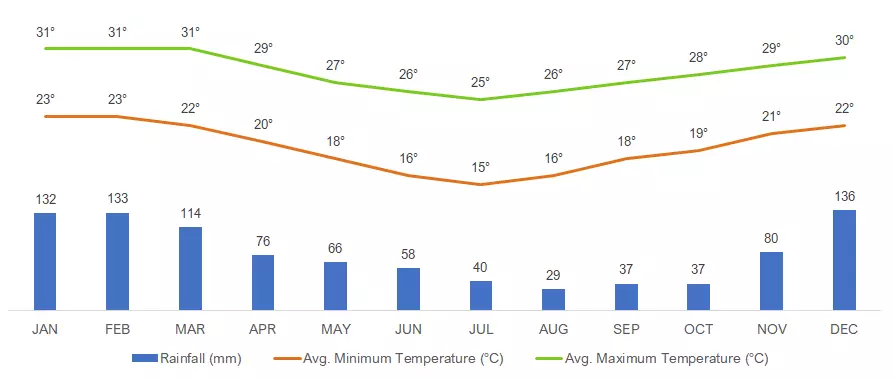
Getting There
You will need to arrive into Inhambane Airport in Mozambique on your project start date. Upon arrival, you will be met by a project representative who will transfer you to your accommodation (approximately 45 minutes from the airport).
A popular flight route to Inhambane is with LAM Airlines, who operate a daily indirect flight from Johannesburg in South Africa (via Maputo).
Visa Requirements
You will require a tourist visa to join this project and we recommend contacting your local Mozambican embassy or consulate to obtain this prior to arrival. If you are travelling from a country that does not have a Mozambican embassy or consulate, it is possible to get a 30-day tourist visa on arrival which can then be extended if required when in-country, and the team will assist you with this. Should you require an invitation letter to support your visa application, this can also be provided. Please also be aware that your passport must be valid for a period of at least 6 months from your date of entry.
Fitness & Skills
This project involves open ocean swimming, so you must be fit enough (and a strong enough swimmer) to cope with this. Those who struggle with swimming are not advised to join this project, and we advise that you must be able to swim around 200 metres comfortably in order to join. Additionally, to join the scuba diving team, you must be at least Open Water qualified; therefore, if you are joining without a dive qualification, you will complete the RAID Open Water course in your first 2-3 days (we strongly recommend completing the e-learning before arriving). The other important requirement is that you work well within a team and have a significant interest in marine life and overall conservation efforts!
Vaccinations
There are no specific medical requirements or vaccinations needed to join this project. The vaccinations required depend on the individual medical history of each volunteer, and we therefore recommend consulting your doctor/GP regarding your own vaccination needs. We also recommend that you take a look at the Fit for Travel website for more helpful information on how best to prepare for your experience, and also note that Mozambique is a high-risk location for malaria, so preventive medications are highly recommended.
Gallery
Reviews
The memory I will take away with me forever is scuba diving with humpback whales!
My favourite moment was learning to dive and seeing my first manta ray. This is a fantastic project, in a beautiful location, with wonderful facilitators and as always a great bunch of international volunteers.
Favourite moments were the scuba diving and seeing a huge amount of all types of Ray one dive. I was disappointed that I didn't see any whale sharks or manta rays as on the website it states that you're more than likely going to see them. I feel like it needs to not be so focused on these as it leaves customers disappointed. There needs to be other details about the project not just around the whale sharks. I enjoyed the project and Calum, Gus and Daryn were good at keeping us busy. I had a great time learning to dive and I felt I got alot out of the trip.
What's Included
- Accommodation
- Three meals per day
- Airport transfers
- All project activities
- Dive equipment (on diving option)
- Project orientation and support
- A conservation donation
What's Not Included
- Flights
- Visas
- Travel insurance (which is a requirement and must cover scuba diving if diving option selected)



























